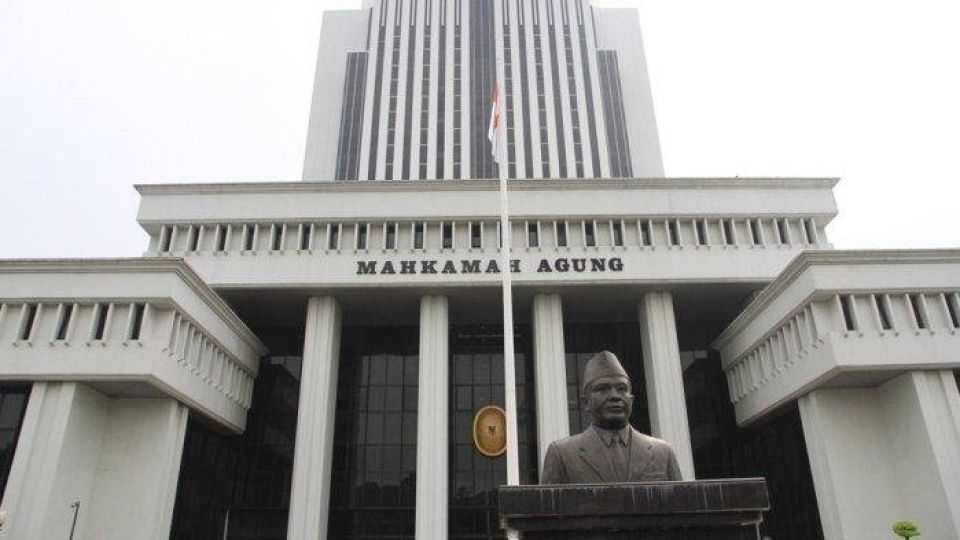May 29, 2023
JAKARTA – The government has created a new team to formulate a plan to accelerate and renew judicial reform efforts that the Supreme Court launched in the early 2000s, after the country’s top court was hit by a bribery case involving two of its justices.
Coordinating Political, Legal and Security Affairs Minister Mahfud MD announced the formation of the new team in a statement released on Saturday.
The team is tasked with reviewing the ongoing reforms and formulating new policies for speeding them up, without threatening the judiciary’s constitutionally guaranteed independence.
The move follows President Joko “Jokowi” Widodo’s instruction on immediate judicial reform last September, when the Corruption Eradication Commission (KPK) opened a bribery investigation into Supreme Court Justice Sudrajad Dimyati.
Comprising four working groups, the new team will not only focus on reforming the judiciary and the criminal justice system, but also find more effective ways to curb and prevent corruption through agrarian and natural resources reforms, as well as closing legal loopholes.
“The team will formulate new policies that will also be delivered to the new administration after the 2024 general election for it to consider implementing,” Mahfud said in a statement on Saturday.
Sudrajad, a justice of the Supreme Court’s civil chamber, was arrested in September 2022 on allegations of accepting bribes. In exchange, he was to issue an appellate ruling favoring two businessmen in a civil case against KSP Intidana, a savings and loans cooperative based in Semarang.
Around three months later, the KPK arrested another justice, Gazalba Saleh of the Supreme Court’s criminal chamber, also on allegations of accepting bribes in exchange for convicting an Intidana executive over falsifying documents.
At least eight other employees at the court, including a clerk and two registry staffers, have all been named as suspects in the bribery case, along with businessmen Heryanto Tanaka and Ivan Dwi Kusuma Sujanto and their two lawyers.
Last week, Supreme Court secretary Hasbi Hasan became the latest among the total of 17 suspects to be named in the Intidana bribery case, which has severely undermined the country’s judicial integrity.
The KPK also launched a separate investigation after it found indications that the suspects in the Intidana case were also part of a bribery scheme involving a hospital in South Sulawesi.
Earlier this year, the Supreme Court said it had taken several measures following the bribery scandals in an attempt to clean house and improve internal oversight, but activists remain unconvinced.
Meanwhile, the Judicial Commission has demanded that the government impose stronger external oversight.
For years, the Supreme Court had long resisted external supervision from the Judicial Commission. This was exacerbated in 2015, when several Supreme Court justices filed a petition for judicial review at the Constitutional Court, which ruled to strip the commission of its authority to appoint judges to district courts, religious courts and administrative courts.
Now, the commission only has the power to appoint Supreme Court justices and investigate ethical breaches.
But the Supreme Court has often ignored many of the Judicial Commission’s recommended sanctions against justices found to have violated the rules.
Team composition
Harkristuti Harkrisnowo, professor of criminal law at the University of Indonesia who was previously on the team that drafted the revised Criminal Code, heads the working group overseeing judiciary and criminal justice reforms.
“This working group will likely focus on improving mechanisms for recruitment and oversight of judicial institutions,” Harkristuti said on Sunday.
Susi Dwi Harijanti, a law professor at Padjadjaran University, heads the working group on legislative reform, which counts among its members several prominent constitutional law experts, such as Feri Amsari from Andalas University, Zainal Arifin Mochtar from Gadjah Mada University (UGM) and Bivitri Susanti from the Jentera School of Law.
Susi and Feri declined to comment their new roles, pending the groups first meeting slated for June 8.
IPB University forest policy professor Hariadi Kartodihardjo is to guide the agrarian and natural resources policy reforms, while former Financial Transactions Reports and Analysis Centre (PPATK) chairman Yunus Husein is to lead the working group on corruption prevention and eradication.
Zaenur Rohman, a researcher at the UGM Center for Anti-Corruption Studies, questioned whether any elected new president would continue with the new judicial reform efforts, saying that Jokowi was a bit late in pushing the initiative before his second and final ended in October 2024.


